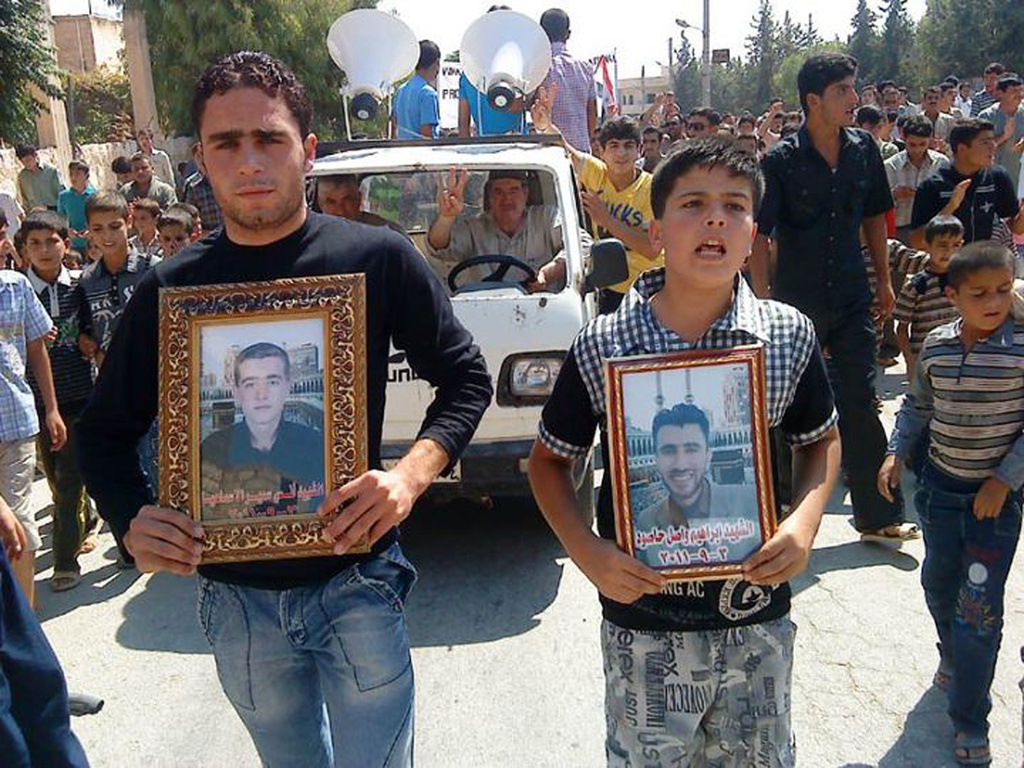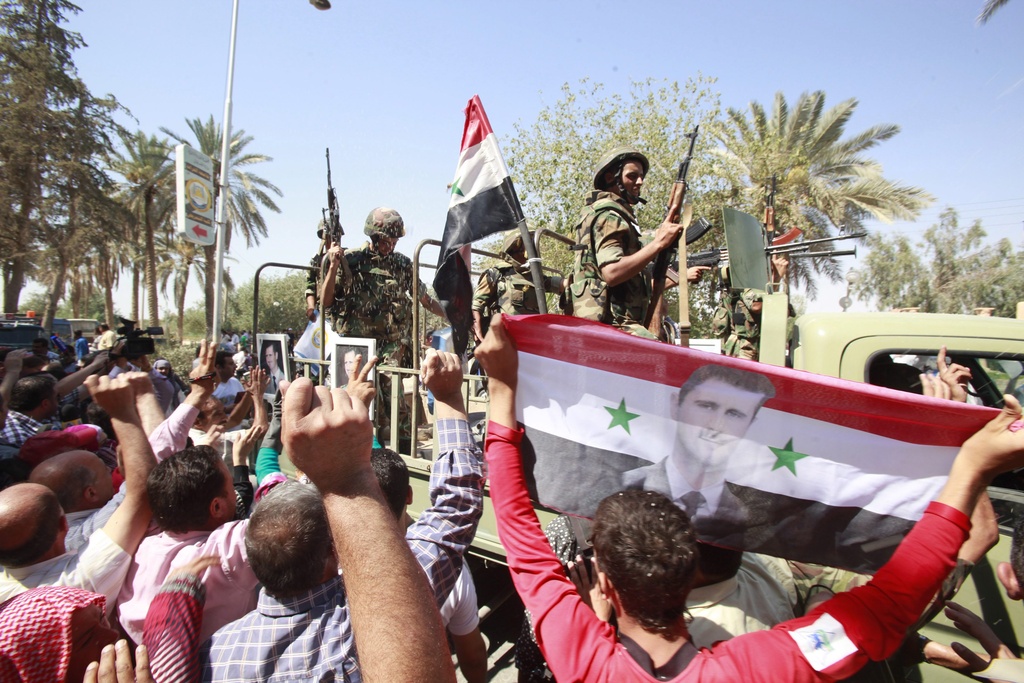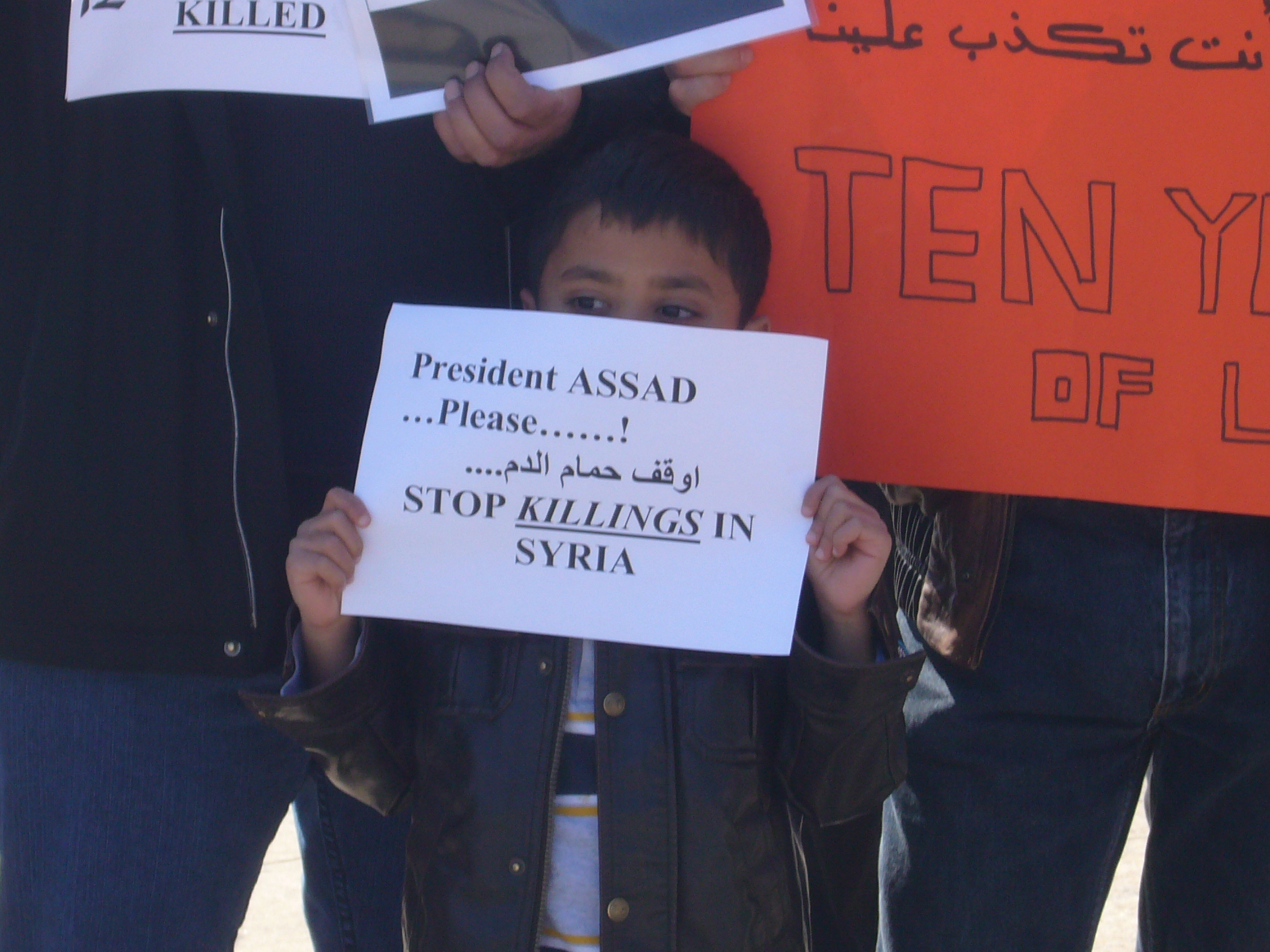Head of UN Syria probe is hopeful of access

The head of a United Nations commission of inquiry into rights violations in Syria says he hopes the team will soon be allowed into the country.
Meanwhile, in New York the Security Council remains divided over possible sanctions against Syria, and reports of armed resistance have emerged after months of mostly peaceful protests.
“We hope to go to Syria so that all parties can share their points of view. It’s in the Syrian authorities’ interests to make known their version of the facts,” Commission President Sergio Pinheiro told reporters in Geneva on Friday.
The 67-year-old Brazilian said he was optimistic his team would be allowed into the country, citing the success of a UN Office for the Coordination of Humanitarian Affairs (Ocha) humanitarian mission to Syria at the end of August.
The team, which includes forensic and legal experts, hopes to meet Syrian authorities in Geneva next week to discuss their visit when a high-level Syrian delegation defends its rights record before the UN Human Rights Council, he told swissinfo.ch.
The probe into violations committed by the Syrian regime during its crackdown on popular protests follows a decision by the Geneva-based rights body on August 23.
The latest enquiry aims to establish the facts and circumstances behind alleged violations and to identify perpetrators so that they can be held accountable.
Second enquiry
The mission is the second to Syria ordered by the Geneva body. In April it assigned a fact-finding mission by the Office of the High Commissioner for Human Rights into the situation in Syria.
But that team was blocked from entering Syria, and had therefore to base its probe on interviews of people in and out of the country, as well as on videos, photos and written communications.
Their investigation, published at the end of August, found a pattern of human rights violations which may amount to crimes against humanity. They also drew up a confidential list of 50 alleged perpetrators for possible prosecution.
Their report described evidence of hundreds of summary executions; the use of live ammunition against demonstrators; the widespread deployment of snipers during protests; the detention and torture of people of all ages; the blockading of towns and cities by the security forces and the destruction of water supplies.
Children
“We have received many scary reports about the situation of children during the conflict,” Pinheiro told swissinfo.ch.
Amnesty International says it has video evidence of people – including boys as young as 13 – found killed with injuries indicating that they had suffered beatings, burns, whipping, electric shocks and other abuse.
The High Commissioner’s Office estimates that at least 2,700 people have been killed in the unrest in Syria since popular protests first broke out in mid-March.
Pinheiro’s team plan to visit neighbouring countries including Turkey to gather testimony from refugees and witnesses before preparing their report by the end of November.
Protests, fighting and talk
On Friday tens of thousands of protesters took to the streets across Syria demanding the removal of President Bashar al-Assad as fighting continued between loyalist forces and insurgents in the centre of the country, activists said.
The London-based Syrian Observatory for Human Rights said one person was killed in the central city of Hama and at least seven people were wounded in another central area, Homs.
The protests spread from the capital, Damascus, and its suburbs to the southern province of Daraa, the northwestern province of Idlib as well as Hama and Homs.
A military official said on Friday that two days of clashes between Syrian troops and anti-Assad forces in Rastan killed seven soldiers and policemen.
Army defectors, as well as reports that once-peaceful Syrian protesters are increasingly taking up arms to fight the six-month old government crackdown, have raised concerns over a civil war in Syria.
Syria says more than 700 soldiers and police have been killed in the uprising which it blames on “terrorist armed groups” backed by foreign powers.
Meanwhile, the UN Security Council met again on Thursday behind closed doors to try to bridge divisions on what would be a first UN resolution condemning Assad’s military crackdown and calling for inclusive political talks.
European members of the Security Council softened the draft condemning Syria’s crackdown but Russia said it could not support the new text.
Switzerland has further toughened its sanctions against Syria, banning loans and credit to Syrian individuals or companies working in the exploration, production and refining of oil. It no longer allows the purchase of or investment in such firms.
It will also be forbidden to deliver or sell coins or banknotes to the Syrian Central Bank.
The measures, which come into force on Saturday, bring Switzerland into line with European Union sanctions.
Existing measures include a ban on the import, purchase and transport of petrol from the country, a ban on the provision of insurance or reinsurance services linked to petrol supplies,
an embargo on military equipment and goods that could be used in the government crackdown, financial sanctions and travel restrictions on 54 people, which include President Bashar al-Assad, and 12 companies. Assets worth around SFr45 million ($50 million) have been frozen.
The government said the move followed Syrian “security forces’ relentless repression of the population”. The European sanctions will have a strong impact as most Syrian oil exports go to the EU. Switzerland however has not imported Syrian oil since 2005, so the embargo should not affect its own supplies.
Syria has a population of 22.5 million, half of whom live in urban areas; 52% are under 25.
The bulk of the population are Arab (89%); other ethnic groups include Kurds, Armenians, Assyrians, Circassians and Turcoman.
Along with the native population, it has several hundred thousand Palestinian and Iraqi refugees.
Sunni Muslims form the largest religious community (72%); there are also Shiite Muslims, and several Muslim sects, including Alawites (to which the Assad family belongs) and Ismailis. Christians are estimated at about 10% of the population, divided between a range of Eastern Orthodox and Catholic churches, with a small number of Protestants. There is also a small number of Yazidis, a secretive sect whose main base is in Iraq.
Modern Syria gained its independence from France in 1946 but has lived through periods of political instability driven by the conflicting interests of these various groups.

In compliance with the JTI standards
More: SWI swissinfo.ch certified by the Journalism Trust Initiative













You can find an overview of ongoing debates with our journalists here . Please join us!
If you want to start a conversation about a topic raised in this article or want to report factual errors, email us at english@swissinfo.ch.